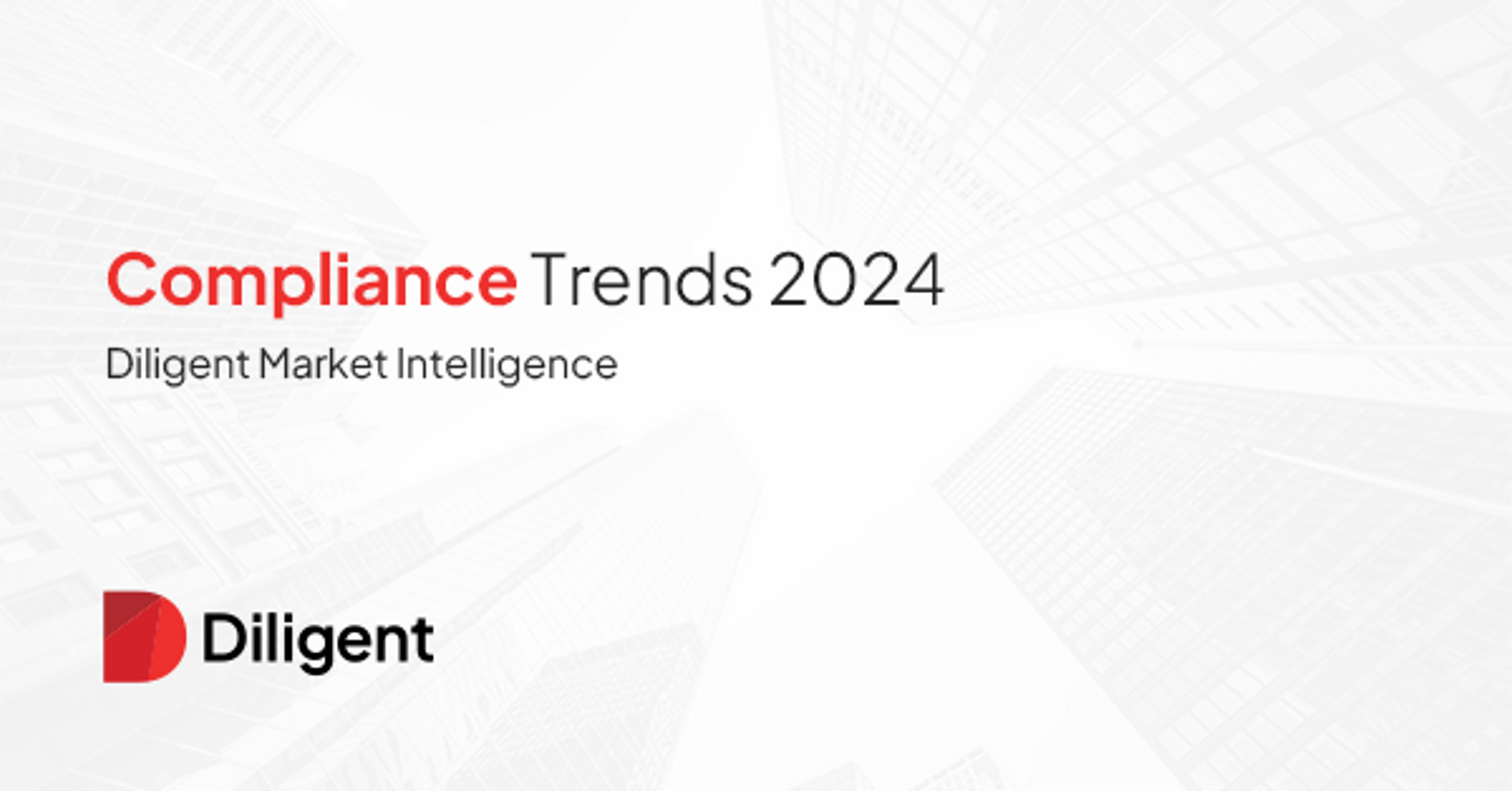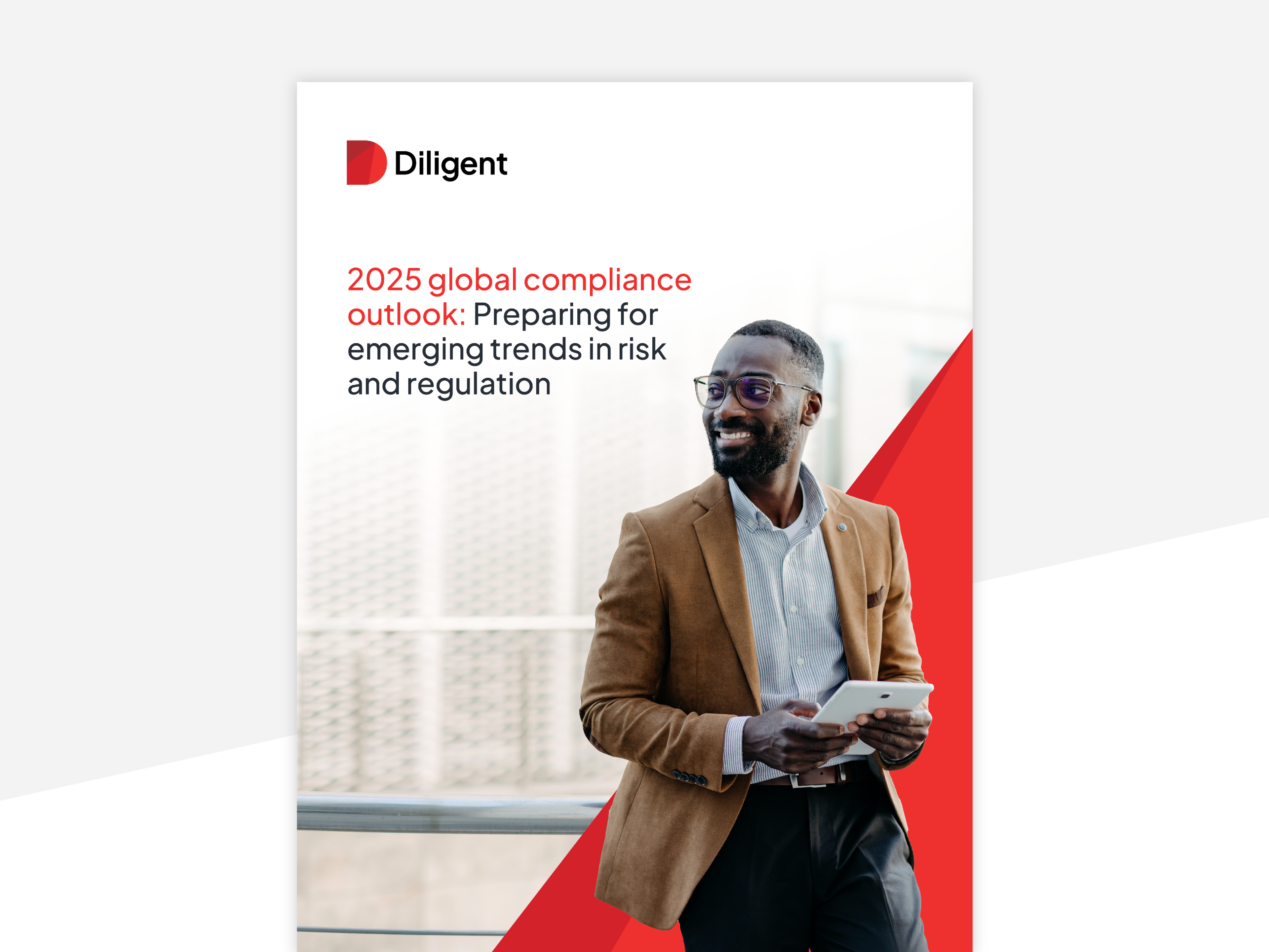
The future of ethics and compliance
In this episode of The Corporate Director Podcast, Dottie Schindlinger is joined by Dr. Hemma Lomax, Founder, CEO, and Chief Compliance Coach of COMPAAS 360. Dr. Lomax shares her extensive experience in ethics and compliance, discussing the latest trends and what the future holds for this critical area. The conversation covers the impact of AI and disruptive technologies, the importance of data quality and integrity, and the evolving focus of regulators. Tune in to gain valuable insights on shaping a culture of integrity and leveraging compliance as a service.
Guests

More about the podcast
This episode also explores:
- The biggest compliance trends of 2024
- Regulatory focus on off-channel communications and whistleblowing protections
- Managing disruptive tech risks and improving compliance
- Sustainability regulation
- Effective ethics and compliance policies
- Hidden compliance risks within organizations
Read more about key regulatory trends for 2025 in the edited excerpts below.
And for practical strategies and insights from Dr. Lomax and other leading experts in risk and compliance, download our 2025 global compliance outlook. This comprehensive guide will help you effectively manage compliance risks in 2025 and beyond.
Meghan Day:
Looking forward, what do you think regulators and, as a result, businesses will be focusing on in 2025?
Dr. Hemma Lomax:
As we see disruptive technologies advance, I think regulators are really interested in a few key areas. First, how are we managing the risks associated with these technologies? Second, what are we doing to use these technologies to improve our processes and compliance? And third, given the rapid movement of information, we need to focus on data quality and integrity, and how we communicate this information to our employees and stakeholders.
There won't be much tolerance for collecting vast amounts of data, keeping it in silos and only looking at it internally. The data needs to be decision-useful, reliable and quickly accessible to those who need it most.
So, I like to think of compliance as a service. The experience we provide is just as important as the policies and processes behind the scenes. I suspect there will be a significant movement toward leveraging technology to analyze data quickly and make it decision-useful. Additionally, we need to bring in data quickly and crowdsource risk intelligence. Data quality, integrity and protection will be high on the list, and effectively using this data to get the right information where it's needed will be crucial.
Meghan Day:
One of the other areas we've discussed is supply chain complexity. Anyone familiar with this topic knows the seriousness of issues like human rights, forced labor and corruption. Let's talk a bit about the board's role in all of this, starting with the human rights area.
Dr. Hemma Lomax:
Oh, Meghan, this is such an important topic and one that's close to my heart. It's crucial for us to consider what we can do and what it means. Third-party risk management and due diligence might sound like tedious processes, but they address serious issues like human rights, modern slavery and forced labor.
In fact, I watched a movie called "City of Dreams" on Amazon Prime just yesterday. It's about a young Mexican boy who was promised an opportunity at a soccer camp in LA but was taken to a sweatshop instead. This movie reminds us that these issues aren't remote; they're happening here in the U.S. and the Western world, as well.
It's essential for companies to think about their reputation and show that they care about eliminating or at least reducing these issues in their supply chains. The board has a duty of oversight to ensure these matters are being addressed effectively. I suspect they will be very interested in what management is doing in this space.
There's a lot of regulation around this, and ESG is a hot topic, particularly the "S" for social issues. We [suspect] that the new administration in the U.S. will be focused on immigration. And with immigration comes the very type of issue that I just described in the movie "City of Dreams." So I recommend your listeners pick that up. It's a very sad movie, but it really does highlight the role of companies and, therefore, the role that boards might want to take when it comes to resourcing the supply chain processes, but also asking good questions, which means, is this effective?
It's good to have processes in place to get the right tooling. That's great. A lot of us spend a lot of our time on that. But the real question is, is it effective? Is it making a difference? And what's the maturity journey? What are we doing incrementally to make sure that we feel more and more comfortable with this wicked, wicked problem?
Meghan Day:
Now, you mentioned the hot topic of ESG here in the United States, particularly the social aspect. What about sustainability regulation? Putting your crystal ball in front of you one more time, what do you think is coming, and where should organizations focus their efforts?
Dr. Hemma Lomax:
Yes, well, I would say, look, there's obviously a polarized debate in the U.S. about ESG and climate change. But the issues we face as compliance professionals haven't gone away. Investors and customers are still very interested in these topics. ESG funds remain popular, especially in Europe and Asia, and they are performing 3 to 5% higher on average. So, there's a real return on having a good ESG profile and approach.
So, what does that look like for us as compliance professionals? Back to the due diligence point. We're going to need to make sure that we're doing our work. When it comes to due diligence, it means that we're going to have to be thinking about the roadmaps for sustainability. What are we saying we're going to do?
What's the governance around what we said we've done and what we said we're going to do? And how are we disclosing that? So, I think people are going to be really thoughtful when it comes to how to respond to the upcoming regulation. We know the Corporate Sustainability Reporting Directive (CSRD) in the EU is in force. People are already doing the scope assessments, gap assessments and there are already requirements. And it's not just an EU thing. If you have a significant operation in the EU, you're probably going to be in scope. So certainly, if you haven't done your scope assessments, get on with it. You're probably late. But more and more, as the scaled approach and implementation come in, we'll all be thinking about that.
So, I would say investors are interested, customers are still interested. And then the regulations coming from around the world are requiring us to do a couple of things: make sure we have due diligence in place, and when we disclose things, it's true. So those are the things that are really important. And it's not just outside the U.S. California has its own requirements. So definitely keep your eye on the pulse. A lot of us compliance professionals may not be experts in sustainability, but we are going to be called upon to give the legal advice for the disclosure requirements. So certainly, something that we should all be keeping in mind and keeping abreast of.
Get more exclusive insights from Dr. Lomax and other risk and compliance leaders in our 2025 global compliance outlook.
Keep exploring

Compliance Trends 2024
The second annual report on trends in compliance

2025 global compliance outlook
Download our 2025 global compliance outlook to confidently navigate complex regulations, enhance risk management and secure your company's future.

Stay ahead of change: Building compliance resilience amid shifting regulations
Essential strategies for managing third-party risks and navigating evolving compliance regulations in 2025.
